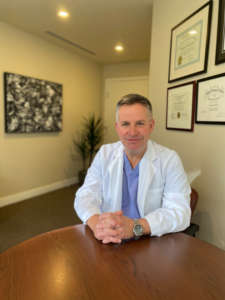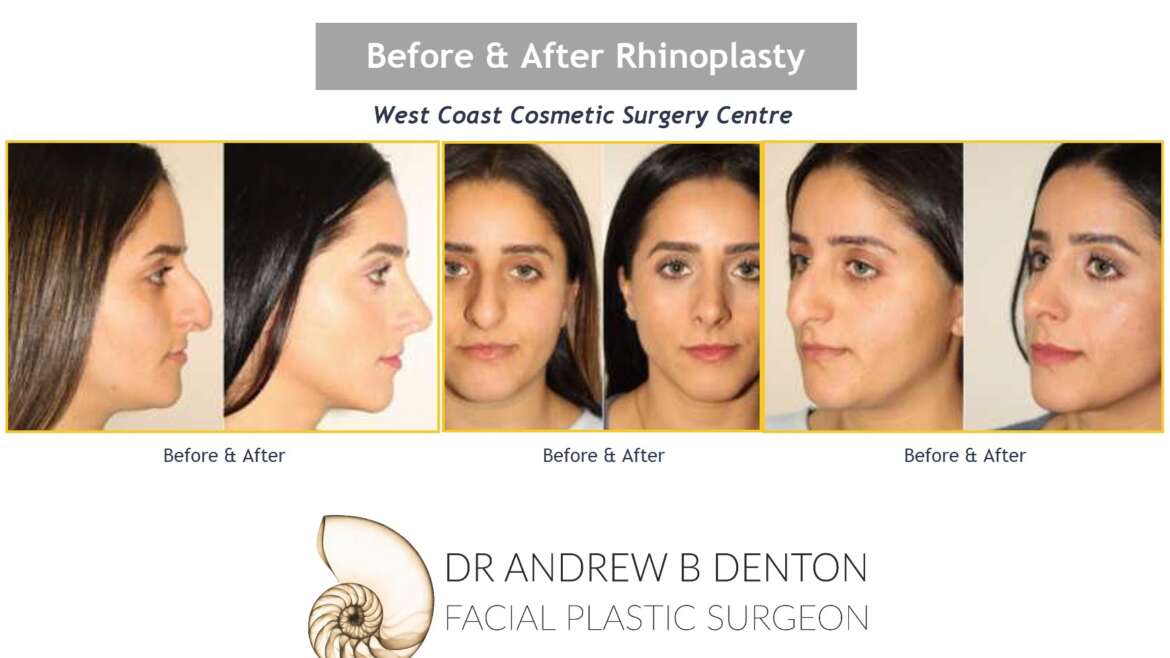Rhinoplasty, commonly known as a nose job, is a popular cosmetic surgery that can bring about significant changes to your facial features. However, post-operative care is crucial to help you achieve a successful recovery and optimal results. Dr Denton, one of Vancouver’s leading board-certified Facial Plastic Surgeons, would like to share with you some important do’s and don’ts after rhinoplasty surgery to promote healing, prevent complications, and achieve the best possible outcome.
Understanding Rhinoplasty
Rhinoplasty is a surgical procedure aimed at reshaping and restructuring the nose, addressing issues such as a crooked nose, a hump on the bridge, or an undesirable nasal tip shape. This procedure can be performed for cosmetic purposes or to improve breathing difficulties caused by structural abnormalities in the nose.
Although rhinoplasty is a common facial plastic surgery procedure, it is also a complex and challenging procedure that requires meticulous planning, skilled execution, and thorough post-operative care.
The Importance of Proper Aftercare
The recovery process after rhinoplasty is a critical phase that can significantly impact the final results of your cosmetic facial procedure. To minimize discomfort, reduce the risk of complications, and promote a speedy recovery, consider the following post-operative tips:
Follow Your Rhinoplasty Surgeon’s Instructions
One of the critical aspects of post-rhinoplasty care is to follow your rhinoplasty surgeon’s instructions to the letter. Dr Denton provides his rhinoplasty patients with specific guidelines tailored to their individual needs. This may include information on wound care, medication usage, activity restrictions, and follow-up appointments. Following his advice will promote a smooth recovery process.
Avoid Touching or Bumping Your Nose
In the immediate post-operative period, it’s essential to avoid touching or bumping your nose. The area around the nose will be sensitive, and any unintended contact could disrupt the healing process. Make sure to avoid any physical activities that might expose your nose to potential harm.
Sleep in an Elevated Position
Immediately, after your rhinoplasty, you should stay in bed with the back and head elevated for the first 24 hours. Likewise, for the first few weeks after rhinoplasty, sleeping with your head elevated can help reduce swelling and promote proper healing. Using extra pillows or a wedge pillow will aid in keeping your head elevated during sleep.
Avoid Strenuous Activities
During the initial two weeks after surgery, it is important to avoid strenuous activities and exercises that can increase blood flow to the face and add stress to the nasal region. Activities such as heavy lifting, running, or intense workouts should be avoided until your surgeon advises you to resume normal activities.
Do Not Blow Your Nose
After rhinoplasty, you should avoid blowing your nose as it can disrupt the delicate healing tissues inside. Try not to apply pressure to your nose for at least a few weeks. If you have to sneeze, do so with your mouth open to reduce pressure on the nose.
Don’t Take Hot Baths and Saunas
it’s important to avoid hot baths and saunas due to the potential adverse effects that can be caused by heat. For example, heat can increase swelling, slow down healing, and raise the risk of infection in the vulnerable nasal area. Additionally, hot environments may cause temporary increases in blood pressure, which can be problematic during the healing phase.
Stay Away from Allergens
During the healing period, staying away from allergens can help you minimize swelling, discomfort, and the risk of complications. Allergic reactions can impede the healing process and increase the vulnerability of the nose to infections. By avoiding allergens, you can promote better healing, reduce the chance of nasal congestion, and ensure a smoother recovery with improved breathing.
Stay Hydrated
Drinking a lot of water or keeping hydrated is crucial during the recovery process because staying hydrated can aid in healing and reduce the risk of complications. Water is the best source of hydration but you can also drink fruit/vegetable juices and drinks containing electrolytes. Try to avoid alcohol and caffeine, as they can contribute to dehydration and hinder the healing process.
No Smoking
Dr Denton always advises his patient to quit smoking before and after rhinoplasty since it is detrimental to the healing process. Smoking constricts blood vessels and reduces oxygen flow to the tissues which can significantly compromise the results of your rhinoplasty surgery. It’s best to refrain from smoking for at least a few weeks before and after your rhinoplasty procedure.
Be Careful of Your Exposure to the Sun
After rhinoplasty, it’s best to avoid sun exposure for several reasons. For example, the sun can worsen swelling and bruising, slow down healing, and make scars more noticeable. Your nose may also be more sensitive to the sun after surgery, and prolonged exposure can cause hyperpigmentation, hindering your recovery process. Using sunscreen and protective clothing will help you if you have to be out in the sun and make your recovery smoother.
Limit Salt Intake
Limiting salt intake is important to minimize swelling and bruising, and manage blood pressure. Salt can lead to water retention, exacerbating post-surgical swelling, while also potentially affecting blood pressure levels. By following dietary guidelines and reducing salt consumption, you can support your body’s healing process and enhance recovery after the procedure.
Eat a Balanced Diet
Eating a balanced diet helps promote healing, support the immune system, and reduce swelling and bruising. A well-rounded diet provides the necessary nutrients for tissue repair and regeneration, aiding in a smooth recovery and minimizing the risk of complications. Following dietary guidelines that may be suggested by Dr Denton can enhance overall well-being and contribute to optimal results from the rhinoplasty procedure.
Avoid Wearing Glasses
If possible, you should avoid wearing glasses for some time to prevent pressure on the healing nose. Glasses can disrupt the reshaped nasal structures, cause discomfort, and potentially affect the final outcome of the surgery. Using contact lenses or alternative eyewear during the healing phase can protect the nose and help achieve the desired results from the rhinoplasty. It’s important to follow Dr Denton’s instructions regarding when it’s safe to resume wearing glasses to help you experience a smooth recovery.
Communicate with Your Vancouver Rhinoplasty Surgeon
Dr Denton believes that his patients should be fully informed in order to make the best decisions, that’s why he encourages unhurried discussion between the patient, the other team members, and himself. So, if you experience any unusual symptoms or have concerns during your recovery, don’t hesitate to communicate with him.
He explains to his patients that communication after the rhinoplasty procedure is crucial for a successful recovery and achieving desired results. Regular communication and attending follow-up appointments will help you understand and follow post-operative care instructions correctly, aiding in proper healing. It allows him to monitor your progress, address any concerns, and detect and resolve potential complications early on. Maintaining open communication also gives you the opportunity to discuss your results and manage expectations. Building a trusting relationship with your surgeon through ongoing communication ensures you receive the best possible care and support throughout your recovery journey.
Schedule Your Consultation with Dr Denton

If you are considering rhinoplasty in Vancouver, it is highly recommended to consult a leading board-certified Facial Plastic Surgeon, like Dr Denton, who is highly experienced in this procedure and has a clear understanding of the nasal structure and the surgical techniques required to perform it flawlessly and provide you with the desired results.
Furthermore, since no rhinoplasty procedure is the same, the surgeon needs to take time to consult with the patient and establish a customized treatment plan. This will reinforce the patient’s confidence, especially when computer imaging is used to reflect the anticipated changes. Dr. Denton’s philosophy is that the patient must be an equal member of the decision-making team so that he or she can make sound informed decisions and will be aware of the expected result.
To learn more about rhinoplasty, what to expect and whether it is right for you, schedule your consultation today. Dr Denton can help you achieve the result that will make you feel more confident about your appearance.

